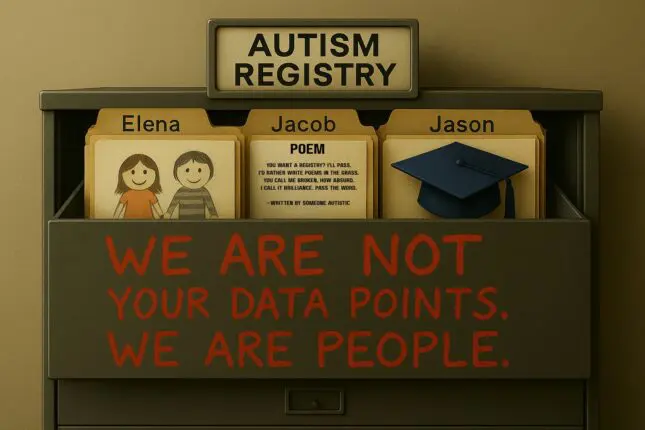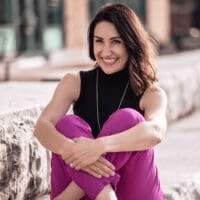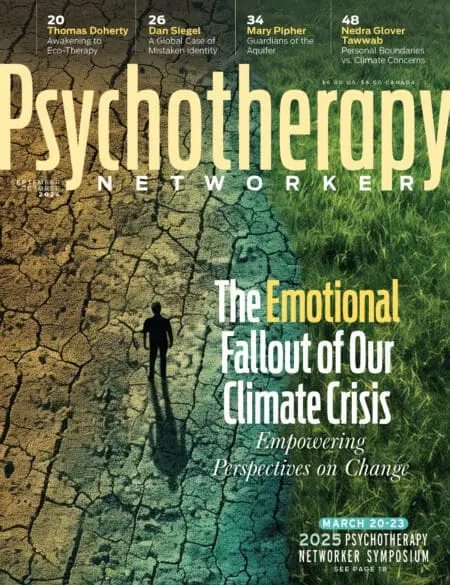On an unremarkable Sunday afternoon in 2019, my eight-year-old, K, texted me from her bedroom, which was one floor above me in the kitchen. She’d just gotten her first iPad, and she was obviously feeling giddy with her newfound messaging power.
“Mom?”
“Yes K.”
“Do people grow out of autism? Can they?”
“Nope. It’s not a disease or an illness. It’s just a unique brain. You can’t outgrow something that isn’t broken.”
“Ok, that was touching and informational.”
“Thanks for the feedback.”
While my kiddo has always had a propensity for deep, existential curiosity, the brain she was wondering about that day was her own. Years before I was an “autism expert,” and decades before my own late diagnosed autism and ADHD, I was a 30-something school social worker, single parenting two young and wildly different kiddos. K was my brilliant, creative, outspoken, dog-loving and very sensitive little girl, who introduced me to the world of what sure as hell didn’t look like Autism to me at the time.
She was chatty, adventurous, and socially fearless. She was walking at eight months and running two days later. She was potty trained by one and reading fourth-grade novels by five. K was truly a force of nature from the moment she entered my life, with a smile that could light up a room. It was unexpected and confusing to see such a small body ride a bike, spell words backward before she could read, and display a photographic memory of facts and details. Simultaneously, it was impossible to ignore the three-hour meltdowns after transitioning home from school, the anxiety she felt from the shock of having a substitute teacher, or the intense pain she seemed to experience when riding in the car or wearing shoes. K visibly had a nervous system that always seemed to be at odds with the world around her.
We’d spent years auditioning a rotating cast of helpers in an attempt to decode K. Our ever-evolving professional squad took us on a diagnostic tour that began with “everything seems normal,” went to sensory processing disorder, then ADHD, anxiety, and depression. Eventually, we arrived at autism.
While the “A-word” terrified many parents at the time, it felt like a relief to me. After all, the autistic kids on my caseload were my favorite ones. I didn’t initially see autism in K, but in the early 2000s, there wasn’t much talk of autistic girls. Her struggles and strengths seemed to make sense in this framework. So, I did what moms do: I became obsessed with learning as much about autism as I could, a decision that would eventually transform not just my parenting, but also my career, my relationships, and my approach to my own lifelong struggles.
Autism is genetic. This quest to understand K’s brain would lead me to understand mine. It was the BOGO deal of a lifetime. For the low price of one neuropsychological report, we changed our lives and redefined our entire lineage. Once I let go of outdated medical model frameworks and the white, cis male version of autism I’d been trained in, and once I saw autism as a neurotype rather than a pathology, it was like flipping on the lights in a room I’d been stumbling around my entire life.
Suddenly, my grandfather wasn’t cold when he avoided his entire family to build clocks in the basement on Christmas Day: he was overstimulated. My favorite family members weren’t rude: they were direct and unfiltered, which I’d always preferred. My childhood memories would reorganize themselves with clarity as my awareness grew: the sense of isolation, the intense passions, the struggles with relationships, and the lifelong anxiety. This new perspective didn’t heal the harm I’d suffered as a result of being misunderstood, but it reframed it. It didn’t rewrite the history of my trauma, but it contextualized it.
I’d come to see myself in this framing, not as a failed version of who I was supposed to be, but as part of a lineage—of artists, engineers, feelers, builders, creators, and “obsessors.” Some had thrived. Some hadn’t. But all of them had deserved to be seen and validated.
This understanding changed how I related to my daughter, my family, my clients, and ultimately myself. When I look back at that text from my daughter, I’m proud of how quickly I responded, and how sure I was of myself. But I’m even more proud that what I texted her was true. You can’t outgrow, heal, prevent, cure, or fix something that isn’t broken. You can only stop pretending that it is.
What’s Spreading Isn’t Autism
In 2025, K is a thriving teenager, well supported with academic accommodations, a network of friends, a newfound love of volleyball, and copious amounts of time at her job as a volunteer at the SPCA. Our love language is built on humor, capybara Tik Toks, and discussions of Love on the Spectrum. K knows who she is, and her neurodivergence is not one of the most interesting things about her. I don’t worry about how she views her neurodivergence, but I do worry about the hatred, ableism, and exclusionary mistruths that are being spewed all around us.
If anything is causing danger to our children and families, it’s the unraveling of progress. Just months ago, I was glowing with the buzz of palpable change. Federal agencies, large corporations, therapy practices, and treatment facilities were hiring neurodivergent consultants. They were hiring me. They were hungry for better interviewing practices for neurodivergent applicants. They took notes as I presented a steady stream of PowerPoints on how to create a neuro-affirming workplace. Managers were learning about sensory accommodations, better communication, ableism, and ways that all of us could make the workplace safer for ND brains. Therapists were finally getting trained to recognize autism in women and gender-diverse clients. After each talk, I’d receive emotional emails thanking me for making invisible struggles visible, for helping people feel seen.
And then, almost overnight, it stopped.
Those same initiatives have been gutted. In some federal spaces, you can’t even say the word inclusion. Training budgets for neurodivergent-affirming workplaces have dried up. My presentations for government employees have been canceled. At the FBI Academy in Quantico, the word diversity was removed from our core values and literally painted over on the walls. It was erased from a mural that once included words like fairness, compassion, and integrity. DEIA programs and Employee Resource Groups have been forcibly disbanded, as if equity itself became too offensive to name. My marginalized clients are under attack for being disabled, for being female, for being queer, for being trans, for needing supports. And now, the U.S. Secretary of Health and Human services—a man with no medical, psychological, or therapeutic training—is telling the world that autistic brains are tragedies.
My caseload of high-masking autistic adults is suddenly facing categorical denials of the accommodations that allow them to stay employed. These aren’t people in entry-level positions. My clients are physicists, linguists, engineers, computer programmers, app developers, intelligence analysts, cybersecurity specialists, architects, data scientists, and more. All highly specialized. All highly sought-after. All tax-paying professionals whose brains power critical systems. Oh, and they’re all Autistic. But they now risk being pushed out, not because they can’t do their jobs, but because we’ve begun denying them the ability to remain supported enough to work.
The Danger of “They’ll Never”
Control is a fallacy. Nobody can predict the children we’ll have, the people they’ll become, or the struggles we’ll face parenting them. Therapists often appreciate this unpredictability, and revel in the beauty of the kind of growth, resiliency, and hope people committed to showing up for themselves can find in the face of uncertainty. Hope may be the most valuable gift we can give our clients. And yet RFK Jr.’s recent declarations about Autistic children present them in a tired, outdated, “less than” view that’s not only wildly inaccurate, but incredibly damaging.
His exact words were: “Autism destroys families, and more importantly, it destroys our greatest resource, which is our children. These are children who should not be suffering like this,” he said. “These are kids who will never pay taxes. They’ll never hold a job. They’ll never play baseball. They’ll never write a poem. They’ll never go out on a date. Many of them will never use a toilet unassisted.”
This kind of language is cruel. “Never will” strips Autistic people of their complexity, their capacity, their self-determination, and their dignity. It paints them as burdens, not as full humans who deserve support, accommodations, and agency. And it’s the kind of language that historically precedes harmful policy. When we tell the world that a certain kind of brain is a public health crisis, we open the door to treating people with those kinds of brains as problems to be solved, rather than people to be understood and supported. Framing autism as something that “destroys families” reinforces outdated, ableist stereotypes. I’ve worked with hundreds of Autistic clients raising Autistic children, and I can tell you: our families are whole. Our lives are valuable. And our differences are not a tragedy.
If Autism is an “epidemic,” as RFK, Jr. says, what do you have to say about those of us who are thriving? For those of us with high-support needs, who live full lives with assistance, where do you draw the line of human value? What does baseball and toileting have to do with human value? Yes, some individuals need more support. That’s not just a reality of autism—that’s a reality of being human. Bodies and brains exist in many forms and capacities. None of us should have to prove our worth to exist. So let’s talk about funding, access, inclusion, and real services to support those who need it. But blaming environmental toxins or vaccines doesn’t get us any closer to helping actual people. It just distracts from the truth: Autistic people have always existed. We’re just finally being seen.
Autism is not caused by ultrasounds, food dyes, or pesticides. It’s genetic. This is not a fringe opinion, it’s a well-established, evidence-based reality that’s supported by decades of research. The rise in diagnoses reflects better awareness, expanded criteria, and the long-overdue recognition of Autistic people who were previously ignored, especially women, LGBTQIA+ folks, and those in BIPOC communities. We’ve been forced to seek our own care through social media and online spaces because far too often, our medical system is run or influenced by people like RFK Jr., and awareness, guidance, and resources are dangerously lacking.
Today, people flock to get diagnosed, often later in life, because they’re finding that diagnosis can lead to something transformative: acceptance, understanding, and accommodations. Everyone deserves to have what I was able to experience when I realized what autism actually meant for me. When I was able to look back at my struggles and successes through an autism lens, I didn’t just “find myself,” I found that I actually like myself. Not the masked self I presented to others in an effort to make them accept me, but the self I found when I stopped forcing my own conformity, the quirky, intense, creative, emotional, sensitive, fast-talking, always moving, forever thinking, nerd that I am. I like her. And when I welcomed her, I also found a framework to understand my challenges and, better yet, the tools I needed to navigate them. When neurodivergent brains learn to properly accommodate themselves, everything changes. Safety, connection, peace, and even success can be found in places many of us thought were off-limits.
For years, people thought the “full spectrum” of autism was represented in stereotypical, media-generated, male savants like Dustin Hoffman’s character, Raymond Babbitt in Rain Man, Sam Gardener from Atypical, or Dr. Shaun Murphy on The Good Doctor. But autism in women and other non-male genders is often undetectable to the untrained eye. Their Autism, and mine, is hidden in layers of careful mimicry and an intense focus on “fitting in.” Many Autistic women and gender-diverse adults learn to blend in so well that they don’t even realize they’re assimilating. We’re often trying to survive in a world that feels confusing, unfamiliar, and “off,” but we’re told it’s us who needs fixing. With understanding, we can often find empathy—for ourselves and from others.
Autism isn’t new. It was never caused by vaccines. Neurodivergence is a part of your genetic wiring, and this is the reality of your human experience from the day you’re born. In essence, it’s caused by your grandpa—the straight shooting business owner/professor at Georgetown, who loves woodworking and reading, and doesn’t get all caught up in his feelings,” who married your grandma, who has a pottery studio in the backyard, makes her own wool yarn from sheep on her farm, becomes an expert in dozens of unique types of crafts, and then goes on to breed rare Australian dogs. That’s where it’s from: your family.
Autistic adults, like the forementioned ones in my family, are regularly called quirky, unusual, a little off, emotionally immature, narcissistic, bipolar, borderline, OCD, addicts, and weird. All of these labels detract from the fact that they were born neurodivergent. Before they were “off,” before they picked up a drink, before they took on unique hobbies, puns, and obsessive interests, their brain was different. Some unique brains become famous; some die by suicide because the world has repeatedly and relentlessly failed to support them. And as helping professionals, we haven’t been trained to identify or support these brains. Instead of developing evidence-based practices to prevent neurodivergent burnout, mental health crises, or the worst case, suicide, we’re diverting the attention to places where we’ve proven it doesn’t need to go: debunked theories of autism that serve a distinct financial purpose.
The Epidemic We Should Be Naming
Theodore Woodward, a medical researcher and Nobel Prize nominee, famously said to his students at the University of Maryland School of medicine, “When you hear hoofbeats, think horses, not zebras.” He wanted to remind them that doctors should prioritize obvious and common explanations before considering rare and unusual ones.
Autism is no longer a mysterious anomaly of the human condition, whispered about only in the halls of special education. What we once thought of as a rare zebra is actually a common horse. But here’s the thing: we neurodivergent people might be everywhere—we’re the business owners, the CEO’s, the scientists, the doctors, the therapists, the government agency leaders, the public speakers, the entertainers, the authors, the comedians, the creators, the tech gurus, the code writers—but we’re also burning out, dropping out, and dying at higher rates than our neurotypical peers. The difference between those of us who thrive and those of us who don’t often comes down to one thing: accommodations. Autistic people are not a puzzle to be solved. We’re a population to be supported with funded services, inclusive classrooms, and neurodiversity-affirming care.
The push to find a single environmental culprit to explain the prevalence of autism—mold, pesticides, vaccines, or air pollution might seem like science-driven curiosity, but it’s rooted in the belief that our existence requires an explanation, and better yet, a villain. Sure, there are complex interplays of genetics and environment that shape every human brain, but don’t dress up fearmongering and call it advocacy. If there’s an epidemic afoot, it’s that of misinformation paired with the death of empathy. I am not an epidemic. My family wasn’t taken out by a wave of environmental toxins that made us anxious and socially unique, any more than mold gifted us our brilliant minds and creativity.
Further complicating an already concerning situation, this administration is now proposing the creation of an Autism Registry to “track the disease.” Let’s be clear: this registry is not about research, services, or support. It’s about monitoring and control. The Autistic community is terrified.
So, here’s my promise, and I hope others will make it theirs, as well: I’ll keep doing what I do best. I’ll keep offering safety, acceptance, accommodations, and real support to my family, my clients, and my community. I’ll also be pushing back, right alongside every single passionate helper in the Autistic community, on every harmful, misinformed word RFK and others like him speak from behind podiums, now, and for as long as we need to.
We are raising the first generation of Autistic kids who know they’re not broken. We are healing Autistic adults who are learning they never were.
We are not a disease or illness. We have unique brains. And we can’t and don’t need to cure or outgrow something that isn’t broken.
Kory Andreas
Kory Andreas, LCSW-C, is a clinical social worker and Autism specialist devoted to supporting neurodivergent individuals through assessments, therapy, and education. A late-diagnosed Autistic adult, she consults with government organizations, mental health treatment facilities, and therapy practices to equip them with strategies for fostering truly inclusive and neurodivergent-affirming environments. You can connect with Kory on Instagram @neurokoryous or through koryandreas.com.













